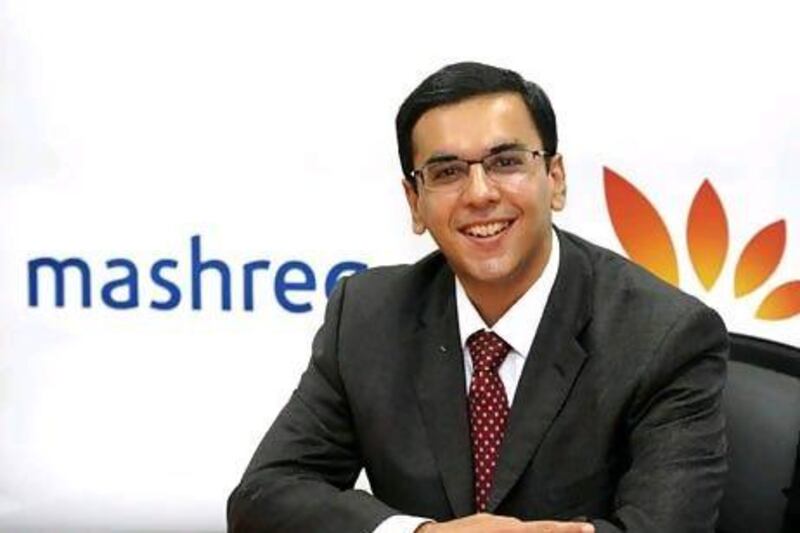Nimish Dwivedi is the head of payments at Mashreq, the country's second-oldest bank. After a spate of reports over the New Year that thieves were "skimming" debit cards via cash machines in the capital, Mr Dwivedi says the most important element to consider when protecting your hard-earned money is vigilance - and to never give out your personal banking information to third parties.
What should banking customers do to protect their accounts from being hacked by third parties?
Customers must be cautious at all times. At Mashreq, we periodically run awareness campaigns to educate our customers on how to safeguard their bank account details. Customers are urged never to give their bank information to anyone - for whatever reason. Moreover, it's the responsibility of customers to safeguard their bank accounts. At an ATM, for example, there are a few things to always remember. You must beware of accepting help from strangers and if you suspect anything unusual, do not use the machine and report it immediately to your bank. Never share your PIN with anyone under any circumstances and always cover the ATM when you input your PIN. When using your debit card, keep an eye on it when conducting a transaction at the point-of-sale, only allow your card to be swiped once and retain your sales slip so you can cross-reference it against the card transactions on your bank account statement. Change your PIN periodically and if you think it may have been compromised, change it immediately.
Are there any tools customers can use to protect themselves, or is it all about being smart and vigilant?
We are all aware how it can be painful to lose hard-earned money, or to have our bank account compromised. So being cautious at all times is required, even with the smallest bank transaction. Be it online banking, at an ATM or even a visit to a branch, there is always some sort of precaution that must be considered. Incidents vary, from accidentally disclosing a PIN or bank account details to a third party to leaving a debit/credit card unattended. It's important to be vigilant at all times. Online banking has become a necessity and more and more customers are using this platform to carry out most of their transactions because it is a convenient and efficient solution. Investing in the latest anti-virus programs, ensuring that you never click on a link that takes you to a bank account and typing in the URL yourself are a few basic things to do to enjoy a safe online banking experience.
Does the skimming of ATM machines occur very often in the UAE?
No; it's a case-to-case basis. It's important to add that banks in the UAE have the latest technology to curb this trend. Also, during the last few years, very minimal incidents have taken place and they were handled in a timely manner.
What is the best defence against skimming?
I would say paying attention is the best defence. In other words, before you swipe your card through any device, such as an ATM, if something doesn't look right or if there appears to be an extra device attached to the machine, do not use it. Walk away and report it immediately to the bank. Always use ATM locations that you are familiar with, so any changes will be more apparent. In line with ATM security, Mashreq's ATMs are equipped with anti-skimming technologies like Jitters and FDI kits, which make it difficult for a skimming device to capture card data. In addition to this, all ATMs are regularly visited to avoid skimming.
What are banks doing to also protect their customers?
Mashreq's website has an extensive awareness campaign to educate customers on how to safeguard their bank account details. We continuously advise customers to be vigilant at all times. All customers who bank online with Mashreq are provided with a set of guidelines that outline our security procedure. We advise customers that at no point should they ever provide their log on details via email as this is the most common source of fraud.






